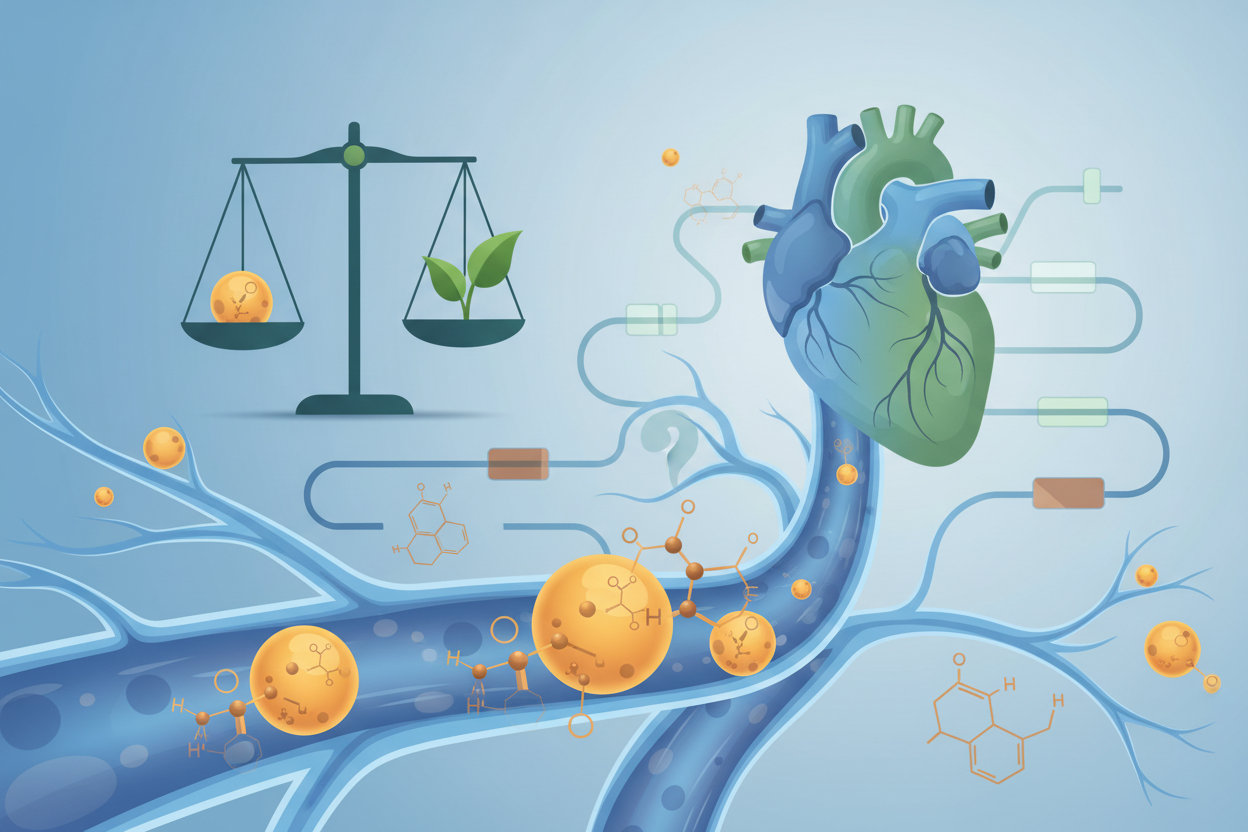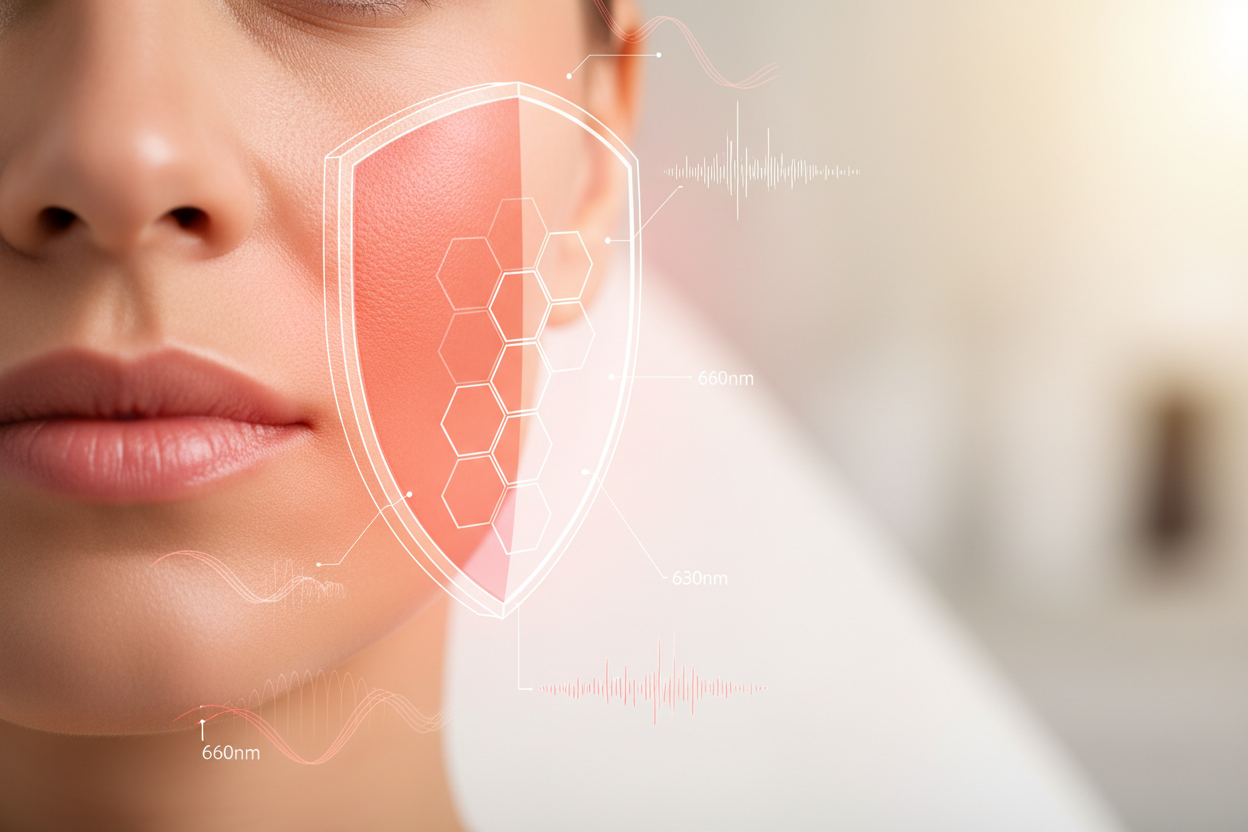
Serotonin, senses, and overloaded sympathetic nervous system: How the modern person loses sensitivity
Serotonin as a brake on sensory perception
Serotonin is much more than just a neurotransmitter associated with mood. It is a key regulator of sensory sensitivity. The lower the serotonin level, the sharper the vision, the finer the hearing, the more intense the sense of smell. Conversely, higher serotonin levels naturally dampen the transmission of sensory information, which can be advantageous in situations where the body needs to limit stimuli and conserve energy.
This is exactly the principle on which antidepressants of the type operate SSRI (selective serotonin reuptake inhibitors) Their task is to increase the availability of serotonin in synaptic connections, thereby stabilizing mood. At the same time, however, they suppress sensory sensitivity, which manifests as side effects such as:
• Worse vision, especially in dim light and low contrast.
• Tinnitus , that is, sounds in the ears caused by improper damping of auditory input.
• Reduced sensitivity to smells and tastes.
• Reduced sexual sensitivity, more difficult to achieve orgasm .
This effect has its logic in extreme situations. If the organism is under long-term stress and escape is not possible, narrowing sensory perception reduces the burden on the nervous system and helps survival. In nature, it is a protective mechanism – if an animal has no way to escape, it "disconnects" from excessive stimuli to minimize psychological stress.
The problem arises when this mechanism remains active for a long time. It leads to de-differentiation – the brain stops distinguishing fine details, sensory inputs merge, perception of reality becomes flatter.
Overloaded Sympathetic Nervous System: The Epidemic of the Modern Human
While serotonin acts as a kind of "brake" on sensory perception, the sympathetic nervous system (sympathetic) plays the opposite role – preparing the body for action. It activates under stress, speeds up the heartbeat, increases muscle tension, and sharpens the senses.
The problem of the modern person lies in the fact that sympathetic is permanently overloaded. Constant pressure to perform, information overload, lack of recovery, and poor lifestyle keep the nervous system in an unnatural state of constant activation. This leads to:
• Chronic fatigue – the organism is constantly on alert but does not get the opportunity to regenerate.
• Anxieties and Overload – too many stimuli, the brain is overwhelmed with information.
• Sensory overload – too much noise, light, information, the brain cannot effectively filter stimuli.
• Insomnia – the sympathetic nervous system does not allow the body to enter deep regeneration.
The natural opposite of sympathetic activation is parasympathetic – a system that enables regeneration, relaxation, and energy restoration. However, in the modern lifestyle, the parasympathetic nervous system is activated only minimally.
That is precisely why it is increasingly common to turn to antidepressants , which increase serotonin levels and help blunt excessive reactivity to stressors. However, they also reduce sensory sensitivity and lead to a flattening of reality perception.
Nutrition for the nervous system: Replenishing depleted sympathetic nerves
The body functions comprehensively and the nervous system needs correct conditions, so that it can maintain the balance between the sympathetic and parasympathetic systems.
An overburdened sympathetic nervous system depletes key micronutrient reserves. If these are not replenished over the long term, the nervous system loses its ability to regulate effectively, and the brain shifts into a dysfunctional mode – either excessive excitation (anxiety, overload, insomnia) or numbness (de-differentiation, dulling of the senses, emotional detachment).
Supplementing specific micronutrients can help restore physiological balance of the nervous system without artificial suppression of sensory perception.
CALM: Nutrition for the Exhausted Nervous System
KLID contains a combination of minerals, vitamins, and antioxidants that specifically replenish substances depleted by chronic stress:
• Magnesium (Mg) – stabilizes brain excitability, reduces sympathetic overload.
• Lithium (Li) (trace amount) – supports neuroplasticity, stabilizes mood.
• Zinc (Zn) – regulates neurotransmitters and supports the regeneration of brain cells.
• Vitamin D3 – essential for the proper production of serotonin and the immune function of the brain.
• Niacinamide (B3) – helps regenerate neurons and reduces oxidative stress.
• Selenium (Se) – protects the brain from damage caused by free radicals.
• Vitamin C – reduces cortisol levels, supports the immunity of the nervous system.
• Vitamin B6 – key for the synthesis of neurotransmitters, including serotonin and dopamine.
• Resveratrol – a strong antioxidant supporting brain and vascular health.
• Folic Acid (B9) – essential for the synthesis of neurotransmitters and the prevention of neurodegeneration.
Conclusion: Balance Instead of Artificial Numbing of the Senses
A modern person often operates in a mode of constant activation. An overloaded sympathetic nervous system and high serotonin create a combination that reduces sensory sensitivity and worsens the overall perception of the world.
While antidepressants increase serotonin and suppress sensory perception, Proper nutrition of the nervous system allows it to restore its natural function .
An overactive sympathetic nervous system is not something we should "silence" with medication – it is a signal that the body needs to replenish depleted resources and return to balance. Proper nutrients, regeneration, and support of the parasympathetic nervous system are a more natural way to restore sensory sharpness, emotional stability, and overall vitality without losing the fullness of experiences and the ability to perceive the world in all its intensity.



Leave a comment
This site is protected by hCaptcha and the hCaptcha Privacy Policy and Terms of Service apply.